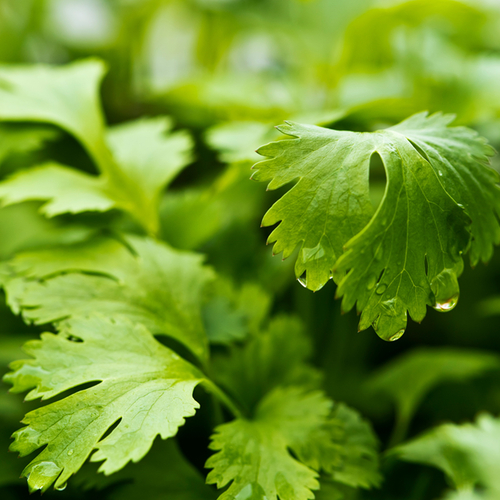
Background
Cilantro is used for cancer, measles, toothache, and many other conditions, but there is no good scientific evidence to support these uses.
In foods, cilantro is used as a flavoring agent.
Safety Safety definitions
When applied to the skin: There isn't enough reliable information to know if cilantro is safe. When cilantro comes in contact with the skin, it can cause hives or itching.
Special Precautions & Warnings:
Pregnancy and breast-feeding: There isn't enough reliable information to know if cilantro is safe to use when pregnant or breast-feeding. Stay on the safe side and stick to food amounts.Bleeding disorders: Cilantro might slow blood clotting. There is concern that cilantro might increase the risk of bleeding in people with bleeding disorders when eaten in large amounts.
Surgery: Cilantro might slow blood clotting. There is a concern that it might increase the risk of bleeding during and after surgery when eaten in large amounts. Stop using large amounts of cilantro at least 2 weeks before a scheduled surgery.
Effectiveness
- Cancer.
- Lead poisoning.
- Measles.
- Mercury poisoning.
- Toothache.
- Other conditions.
Dosing & administration
Interactions with pharmaceuticals
Medications that increase sensitivity to sunlight (Photosensitizing drugs)
Interaction Rating=Moderate Be cautious with this combination.
Some medications can increase sensitivity to sunlight. Cilantro might also increase your sensitivity to sunlight. Taking cilantro along with medication that increases sensitivity to sunlight could increase the chances of sunburn, blistering, or rashes on areas of skin exposed to sunlight. Be sure to wear sunblock and protective clothing when spending time in the sun.
Some drugs that cause photosensitivity include amitriptyline (Elavil), Ciprofloxacin (Cipro), norfloxacin (Noroxin), lomefloxacin (Maxaquin), ofloxacin (Floxin), levofloxacin (Levaquin), sparfloxacin (Zagam), gatifloxacin (Tequin), moxifloxacin (Avelox), trimethoprim/sulfamethoxazole (Septra), tetracycline, methoxsalen (8-methoxypsoralen, 8-MOP, Oxsoralen), and Trioxsalen (Trisoralen).
Medications that slow blood clotting (Anticoagulant/Antiplatelet drugs)
Interaction Rating=Moderate Be cautious with this combination.
Cilantro might slow blood clotting. Taking large amounts of cilantro along with medications that also slow clotting might increase the chances of bruising and bleeding.
Some medications that slow blood clotting include aspirin, clopidogrel (Plavix), diclofenac (Voltaren, Cataflam, others), ibuprofen (Advil, Motrin, others), naproxen (Anaprox, Naprosyn, others), dalteparin (Fragmin), enoxaparin (Lovenox), heparin, warfarin (Coumadin), and others.




